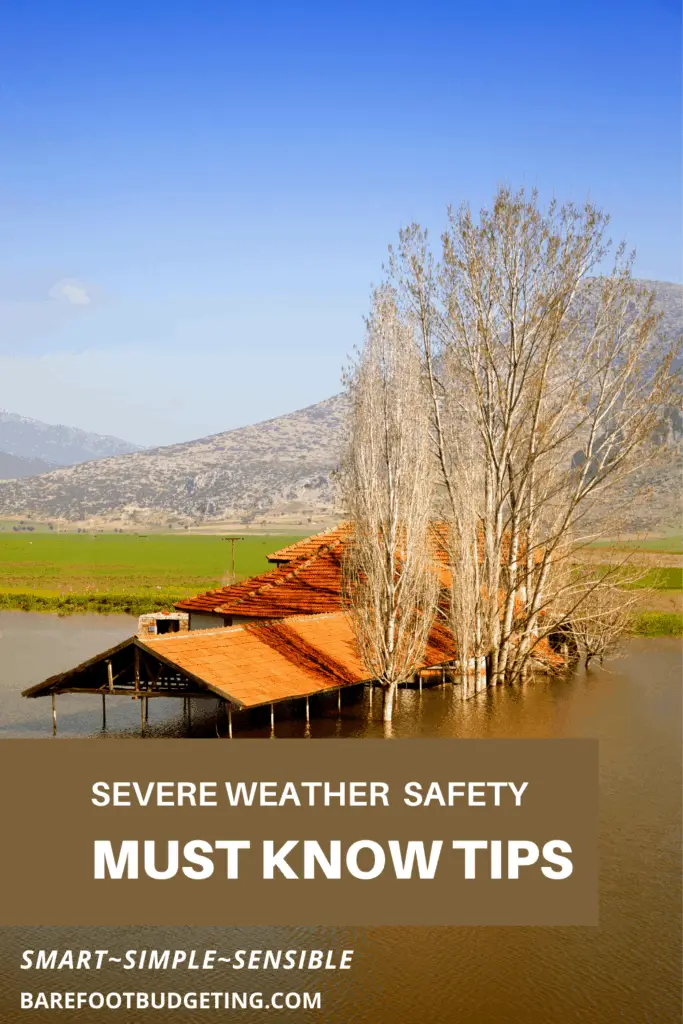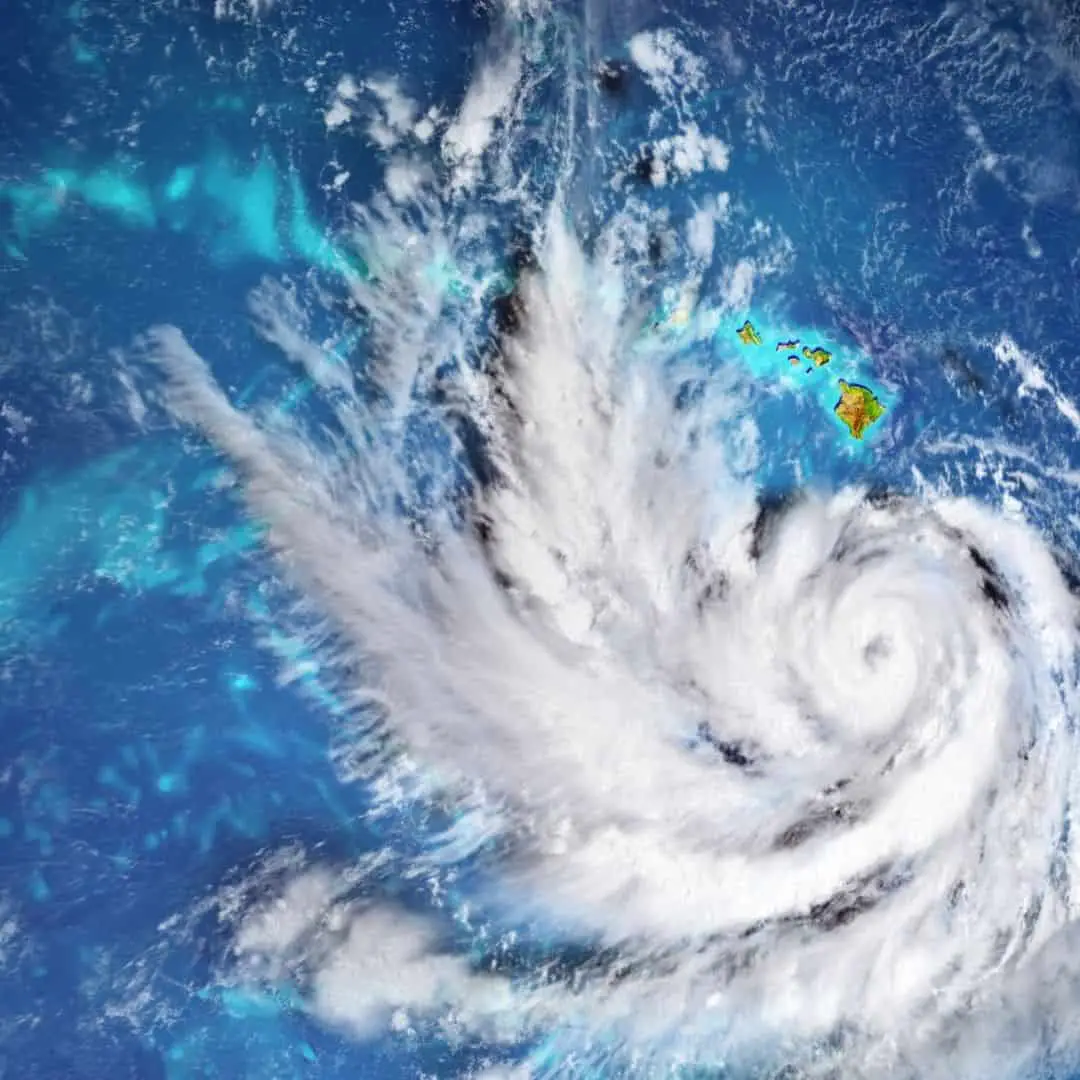*This post may contain affiliate links. As an Amazon Associate we earn from qualifying purchases.
It’s no fun when severe weather hits. It’s even more difficult to figure out what to do when you’ve never taken the time to set up emergency planning or options for how to prepare for weather hazards. The good news is there are ways that you can easily educate yourself on severe weather safety. Let’s get you on track even if you’re unprepared now,
These emergency planning tips can help you, and your family. You’ll all know how to react in situations where decisions have to be made quickly for your overall safety concern.
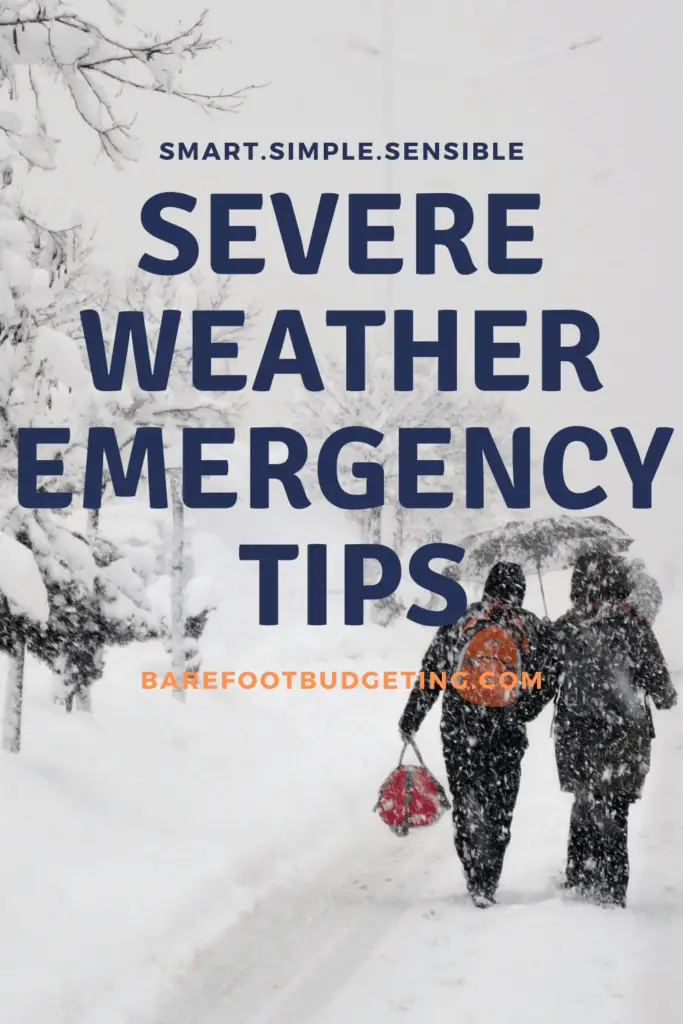
What Are The Four Types of Severe Weather?
While it might feel as if there are a lot of varied weather patterns to be aware of, there are really only four. The major types of severe weather that you need to plan and prepare for. These include:
- Tornados/Storm Warnings
- Flooding
- Hurricanes
- Blizzards/Snow
And if you’re scratching your head and saying that there are more than these four, think of them in the broad term and you’ll see what most types of severe weather can be fit into one of these categories. Hail, lightening, thunder, and high winds would all fall underneath the storm warnings, to give you a bit of an idea of how to think in broad terms.
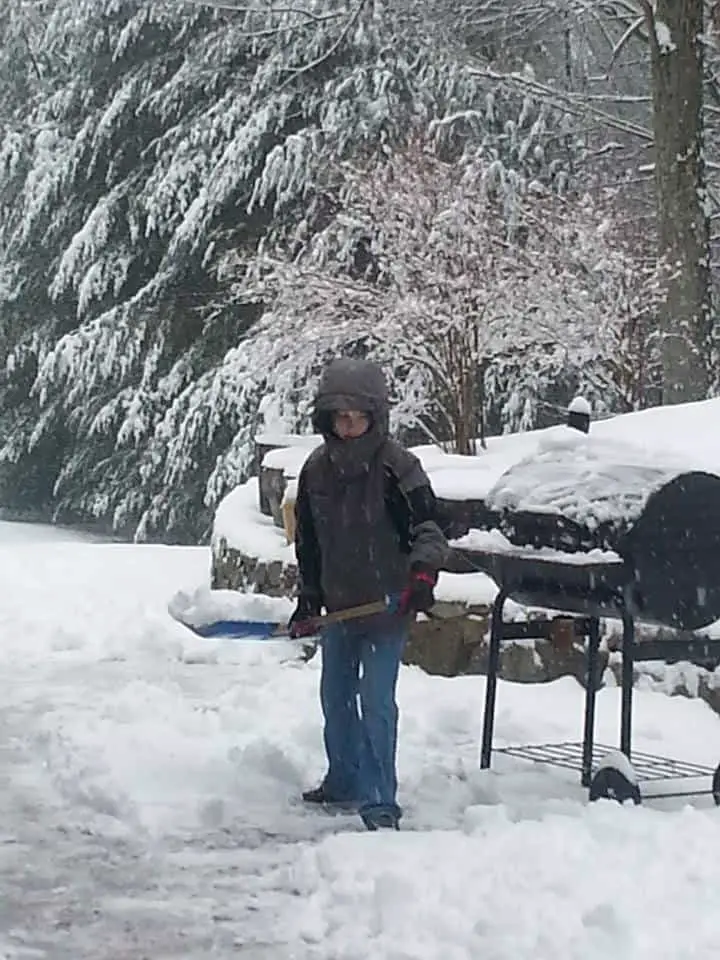
What Does a Severe Weather Warning Mean?
When you hear the severe weather warning issued by the local weather forecasters, this means that there is a high potential that severe weather will be headed to your area. It’s not a guarantee but it’s a “warning” that you need to act quickly to be prepared. A severe storm and bad weather can happen quickly so it’s always a good idea to pay attention to the warnings issued.
You may also hear about a “watch” for the area and that can be different than a warning. A watch means that you need to be aware that there is potential but it’s not a guarantee that something severe is going to happen.
Prepare the umbrella before it rains.
Malay Proverb
From The National Weather Service
The following are National Weather Service criteria for issuing Watches / Warnings / Advisories:
- Watches: 50% confidence of meeting Warning criteria (generally within 36-48+ hours).
- Advisories and Warnings: 80% confidence in the event occurrence (generally within 24-36 hours).
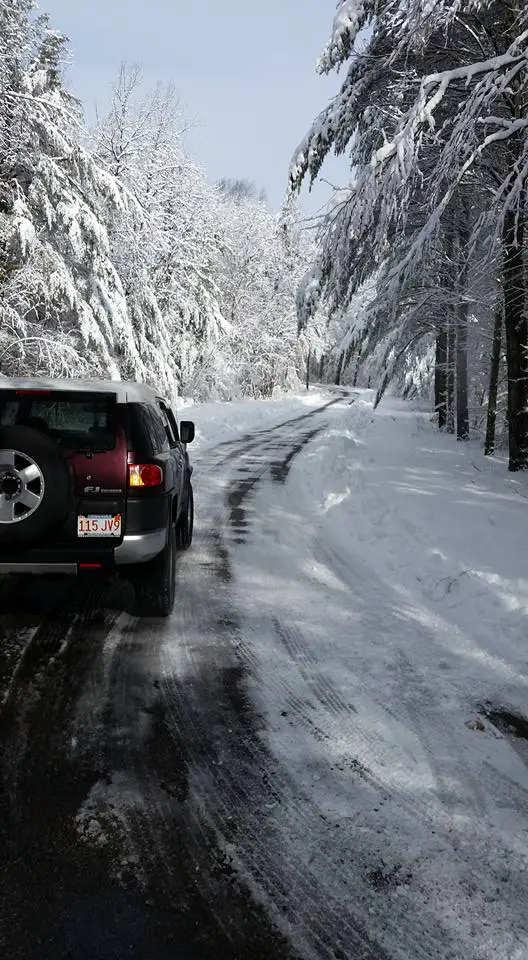
What Is The Most Severe Weather?
In terms of storms that can do a ton of damage quickly and with little to no warning, a tornado fits this bill. Tornados can have winds over 200 MPH and can literally happen with no warnings at all.
Other storms, such as hurricanes, are severe too but typically have a window leading up to them where the public can be educated on what to expect and to stay informed as the severity increases.
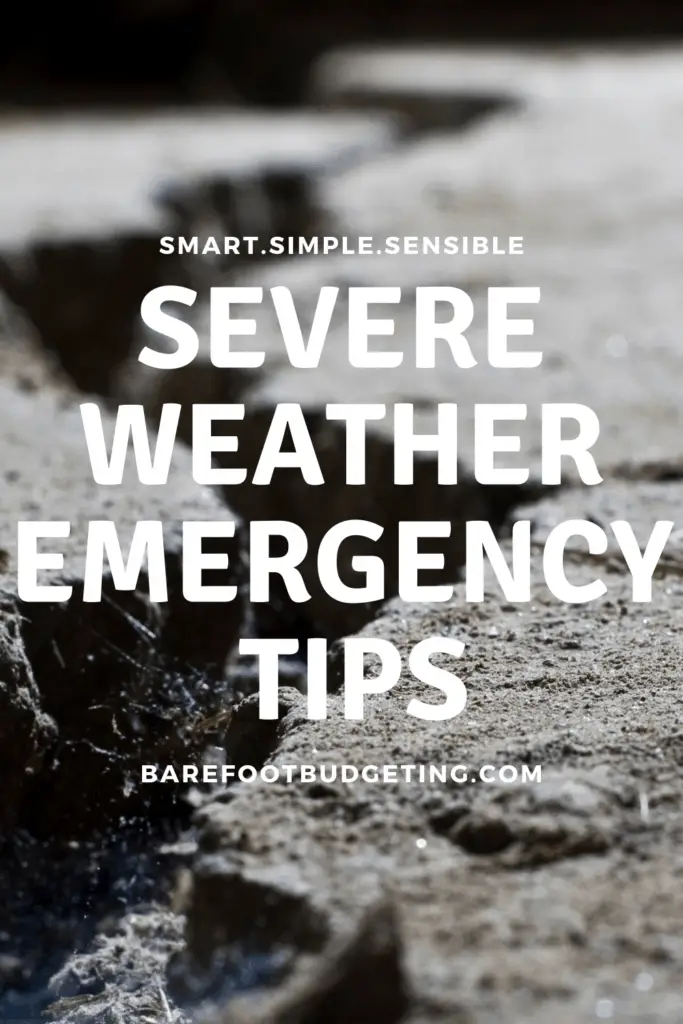
Severe Weather Safety – Emergency Planning Tips
To be as educated as possible and prepared for severe weather, there are a few severe weather tips that you can do on your own to minimize surprises.
Put a Plan Together and Share with Your Family
FEMA (Federal Emegency Management Agency) puts a great list of resources together, you’ll want to check out. You will also want to check your local state’s for information. First and most important on all these lists are to make a plan and communcate.
Communicating can mean posting in a family binder, hanging up inside a cabinet, placing in car glove compartment (or all of these). Even a document distributed that can easily be opened on your phone or email from anywhere.
- Where to Find Out About Emergencies (eg; Television/ Radio/ Work or School Announcements)
- Do you know your ‘shelter’ plan. Do you know where to go if home is not accessible?
- Alternate routes to evacuate / leave the impacted area.
- Do you have an emergency kit / first aid kit/ go bag? Are they up to date?
Do You or Your Family Have Special Needs?
if you or someone in your family has special needs you want to be sure they are addressed and provisions made in each aspect of your preparedness. Examples of this could include (not limited to)
- Allergies
- Medications or Items such as wheelchair/ crutches/ even hearing aids, etc..
- Disabilities and accessibility to shelters and safety needs.
- Elderly Limitations (similar to above)
- Cultural and Language / Religious Considerations
I don’t believe in luck, I believe in preparation.
Bobby Knight
Have Alternate Sources of Heat or Power and Water
One of the most common things that happen when severe weather hits is that the power goes out and it’s a toss-up for how long it will be down.
Stocking up on battery operated lanterns, blankets, and other items that can help to keep you warm. Keeping the heat in the house and also provide lighting. These are simple and easy ideas.
If your water is provided by a well, you will want to have a water supply in case of power outage. (hint: fill that tub or many pots and pans). Flushing a toilet can be a major problem for those on well water.
You can also purchase a generator and have that on hand to really be able to power your electrical needs without worry, too.
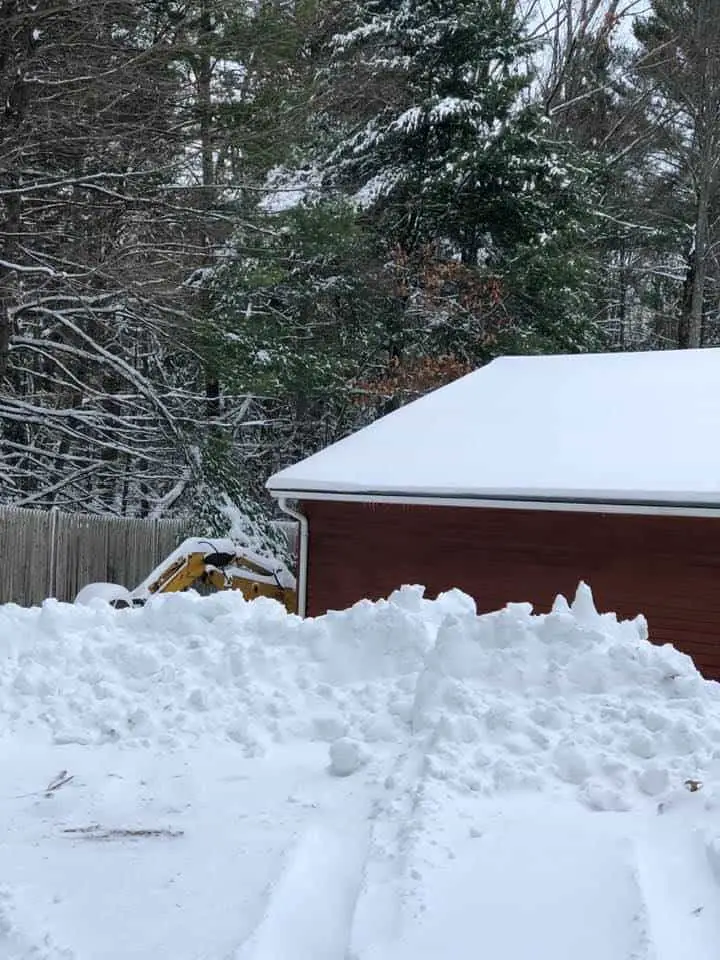
Invest In a Weather Radio
There are battery-operated weather radios that can come in quite handy. This way, if you lose power, you don’t have to worry about losing your source of information. Weather radios were created to give everyone the most up to date information on weather conditions and having one that takes batteries means that it’s going to keep going no matter what.
Also be certain to stock up and have plenty of extra batteries on hand, just to be safe as well.
Stock Up on Easy Food Items and Plenty of Bottled Water
Even though bottled water is expensive for what it is and isn’t the best for the environment, there are times when you should have it on hand for your safety and well-being. Buying a few packs of water when it’s on sale. Put aside for storm preparedness will mean that you won’t have to worry about anything dehydrating or getting low on their fluids.
And since there really isn’t an expiration date on water, you can buy when it’s one sale and have it stored easily for whenever the time comes that you need it.
Speaking of water, keep a bag or two of ice in your freezer. Keeping this on hand helps keep food cold inside freezer, but can also be used to help with keeping ‘refrigerated’ foods cool a bit longer. Keeping refrigerator and freezer doors closed as much as possible will help maintain a ‘safe’ temperature for a longer period of time. Exercise caution when eating any foods that have fallen below the safe refrigeration temperatures.
The same goes for having canned food items and a can opener on your shelf. This would at least give you some safe food options to eat, should you get in that situation and need something fast.
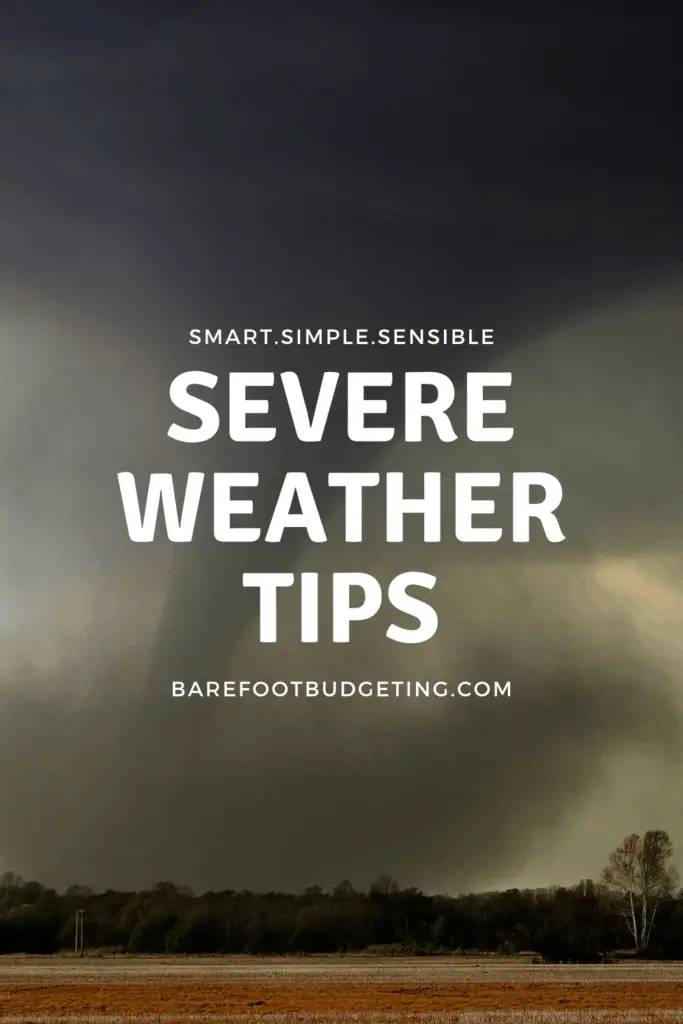
Communicate a Weather Safety Plan With the Family
Just because you might know what you need to do when sever weather strikes doesn’t mean that everyone in the family is on the same page.
Take the time to communicate the best plan for your family. Make certain that everyone understands what their role is during this time. Going through the plan a few times is a good idea too. When fear and chaos arise, it’s no secret that everyone can be under a lot of stress. Things might get a little jumbled and forget what they’re supposed to be doing. Communicating clearly will go a long way to a better execution of the plan.
The more that you can go over the plan, the better prepared everyone will be for a severe weather outbreak.
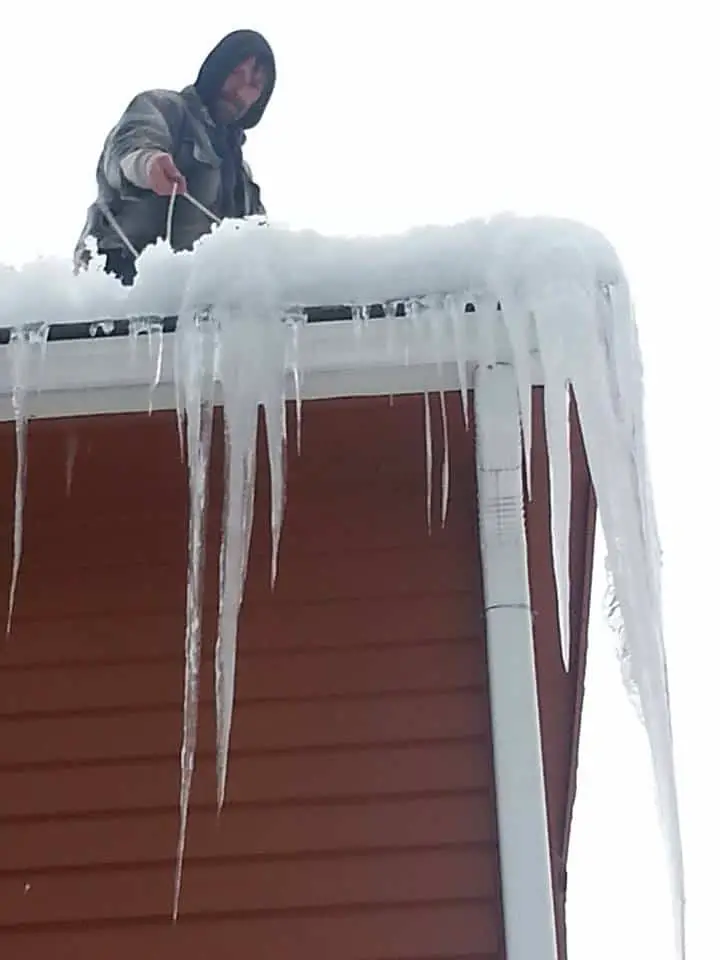
By failing to prepare, you are preparing to fail.
Benjamin Franklin
Save Your Electronics Battery Power For Emergency Use Only
Just in case the electricity does go out, reserve the use of your cell phone for emergency use only. If you can purchase a few backup batteries for your cell phone or other electronics, that would be great as well. Keep them charged and ready to use so that you can communicate with others in your family or in the community that might need help.
When it comes to being prepared for whatever Mother Nature throws at you, these severe weather safety tips can help. It’s also important to remember to never try and outrun a storm and find a secure and safe place in your home that you can hunker down until the storm blows by.
I encourage you strongly if living in the United States to visit Official U.S. website ready.gov / plan . This website has many printable forms to help you prepare for each unique situation.
Using these weather safety tips can help you be as prepared as possible should any impending severe weather occur. As long as you take a few steps to be prepared, you’ll find that you might be a bit calmer during the chaos. Knowing that you’ve taken the appropriate steps to do everything that you possibly can will go a long way.
Bad Weather Ways to Pass the Time In a Power Outage
- Make sure You’ve got some Card and Board Games
- Have your Crayons and/or colored pencils ready for some great coloring.
- Plan ahead and print out some fun crosswords, word find or character search games.
- Books, no better time to dig in deep with a paperback, right?!
- Catch up on some journaling.
More Tips To Consider
